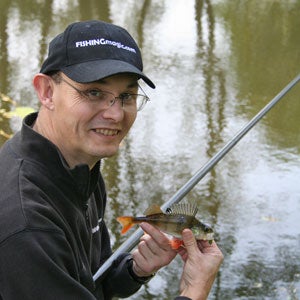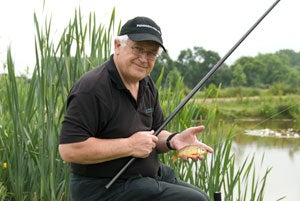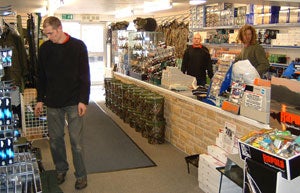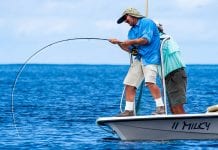| MARK WINTLE | |
|
Beginner’s Essentials 6 – Getting Started 1The purpose of this series is to guide you to a good start in coarse fishing, for if you make a good start you will probably be an angler for the rest of your life. A good start includes catching fish, for there is nothing worse for a beginner than to go fishing and catch nothing. It is, then, vital that you don’t set your sights too high for the first few outings, which is why you will find very little about catching bigger fish in this series.
The first thing you should bear in mind about fishing is that it is not an objective sport, where there is a specific reward for achieving a certain degree of skill. For instance, in darts, if you have reached a certain level of skill, you know that if you concentrate hard enough you can place a dart in treble 20 more often than not. The difference between fishing and darts is that the dart board doesn’t move; it doesn’t feed; and unlike fish, is always in the same spot every time we want to throw at it. The point being that anglers are dealing with living creatures that don’t behave the same way every single day of the year, but are subject to different behaviour according to weather conditions, food availability, presence of predators, water level (river),and all kinds of other things that dictate where fish can be found in a water; whether or not they feed; how much they feed; on what they feed; and for how long they feed. However, most of those problems are for experienced anglers who set their targets at bigger fish of a specific species, rather than smaller fish of any species – for, let’s face it, a newcomer to fishing is pleased to catch anything that comes along, and is not bothered too much about how big it is. So the fact that we are happy to catch any species, and don’t mind if they are on the small side, makes life a lot easier. It is easier because small fish of all species, excluding pike, behave in almost exactly the same way. They shoal together and feed together, and can usually be caught with exactly the same tactics and baits. It is only when fish grow older and mature they develop the different characteristics and habits of the species they belong to.
Because the fish we normally catch as beginners are small and immature, they do not have fully developed survival instincts, ie, they are not so afraid of movement and noise on the bank etc. This can lead to bad habits in an angler, for simply because he got away with being noisy while he was a novice leads him to believe that fish are always so tolerant, when the fact is that mature fish are soon scared and leave the noisy area. Therefore, it is important we develop the right habits right from the first day we go fishing, which means we approach the water with care; walking and not running, treading lightly and not jumping; and keeping low to the skyline and not waving our arms around at the water’s edge. All these things scare fish, even small fish, but small ones are quick to recover and return to the swim, giving us the impression that they were not scared at all. So, if we develop the habit of approaching waters and fishing in a quiet manner we eventually do it without thinking; it becomes second nature, a natural way of conducting ourselves that will stand us in good stead when we are ready to fish for bigger, more wary fish. Right, so we have set our cap at small fish, though we won’t complain if a bigger one comes along and we manage to land it! Fishing for small fish usually means float fishing, and float fishing is much more interesting than legering anyhow, which makes it the ideal method for the beginner. We have, though, included a section on basic leger fishing later in the series, for when you are ready to give it a try. The First Approach When you get deeper into fishing you will want to know more about fish location, ie, how to choose a swim to catch a certain species, which involves knowing quite a lot about the feeding habits of each species in different conditions. But all that is for sometime in the future when you have more experience. While you’re learning there is a much more simple way of choosing a swim, one which many anglers use all their lives.
The first place to start is the tackle shop, where the tackle dealer hears all the gossip about who has caught what from where. He usually knows more than anyone else which waters are fishing best at the time, and which swims are producing the best catches. Tackle shops are meeting places for anglers, where they exchange stories about the fish they’ve caught, as well as the ones that got away! Keep your ears open and you could learn a lot. But don’t go seeking information if you can see he is very busy, for he won’t thank you for that, and, more important, he won’t have the time to give you the answers you want. Remember that his busiest times will usually be Friday evening, all day Saturday, and Sunday if he’s open. Another good place to get information is your angling club. They usually meet once a month, and there is always much talk about who has caught what from where, and how, following the meeting. And keep your eye on match results, where matches are fished on the waters you are interested in. Then, of course, we have the waters themselves, where an occasional walk round, chatting to one or two anglers on the way, can teach you a lot. And the best way of all, at this stage in your angling career, is to choose a peg that shows excessive bankside wear and tear as evidence of its popularity. You can be sure it will be a good peg! Next Week: Tackling up, casting and playing fish |
















